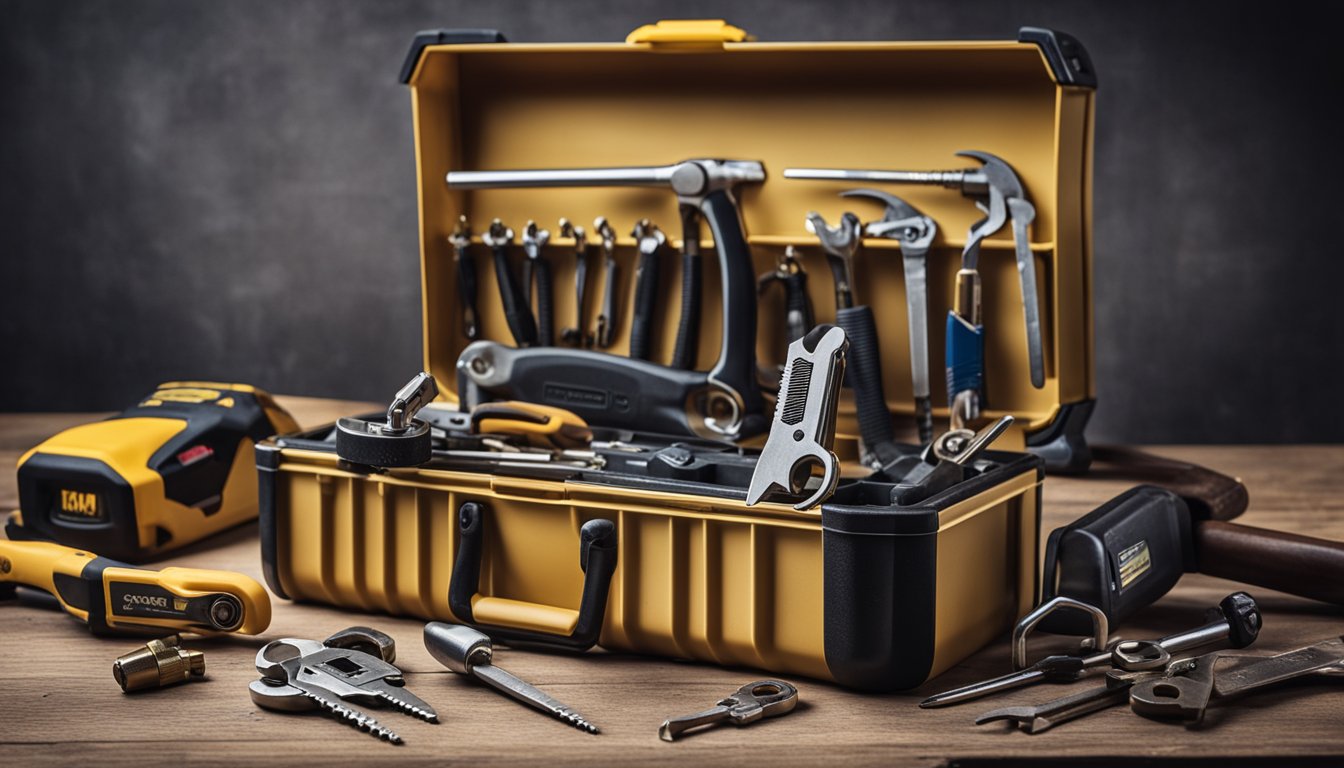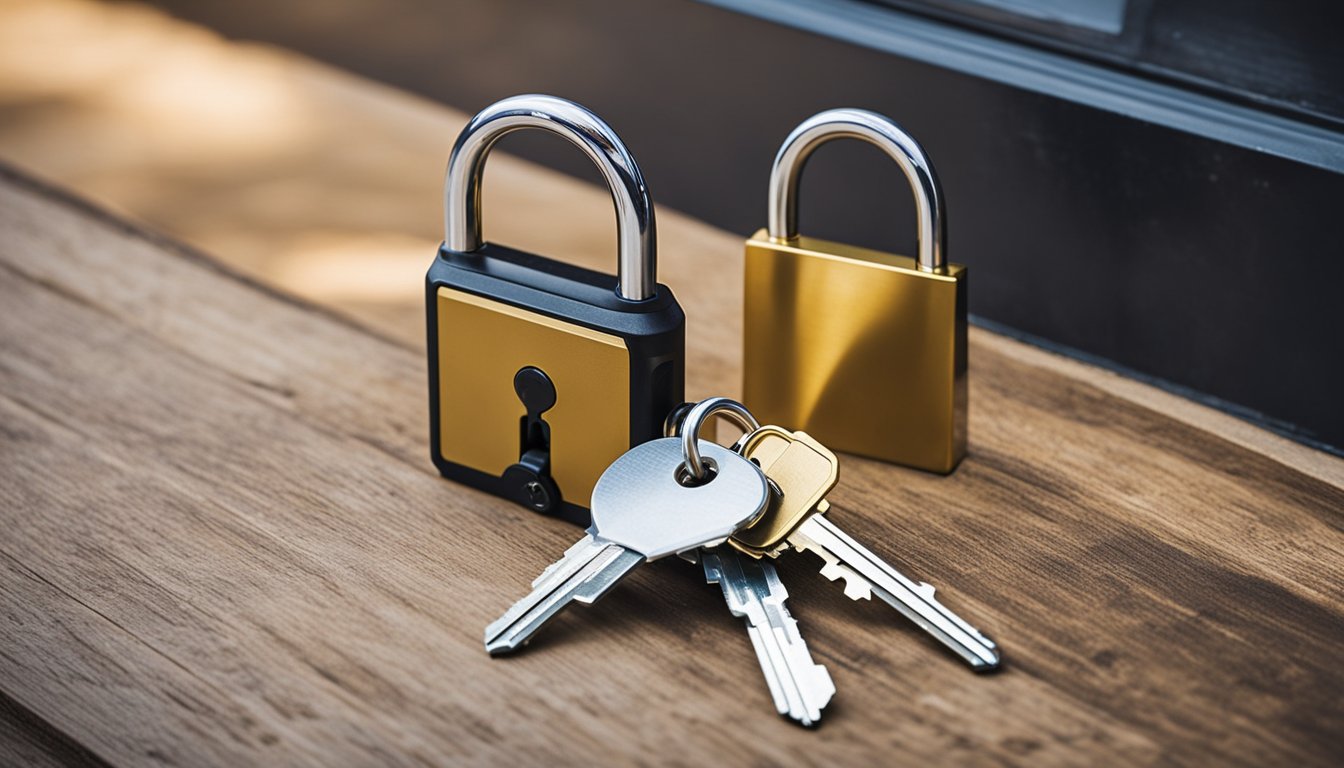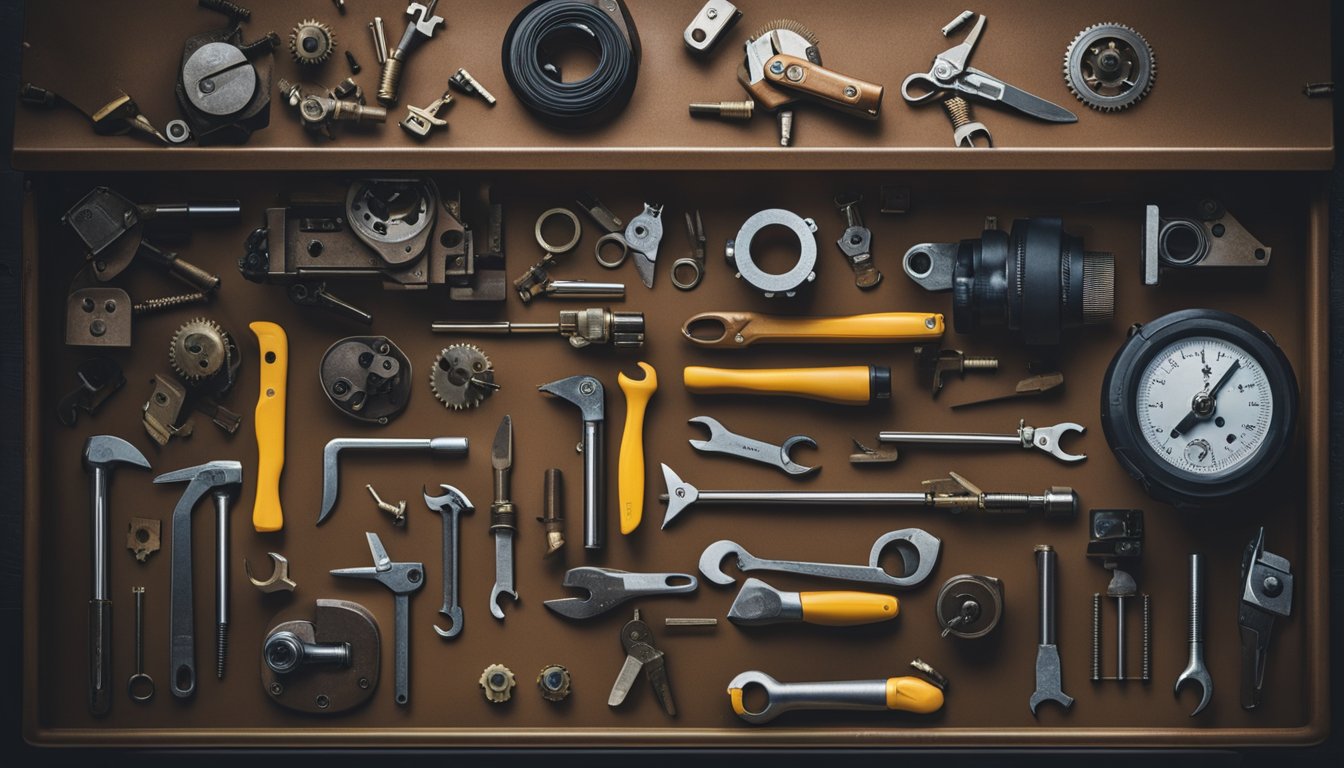Late updated: 22 Oct 2024 11:10
Written by: Elena Prescott
Home Lock Maintenance Tips For Beginners: Essential Advice for New Homeowners
For those of us just starting on our journey of home security, understanding basic lock maintenance is crucial. Our locks safeguard our homes, but without proper care, they can malfunction or even fail, leaving us vulnerable. Regular maintenance can prolong the life of your locks, keep them functioning smoothly, and ensure your home remains protected.

Cleaning is a simple yet effective practice to maintain lock longevity. Avoid harsh chemicals that might damage locks and instead opt for mild cleaning agents to keep components in prime condition. We should also pay attention to how smoothly mechanisms operate; stiffness or grinding sounds might indicate the need for immediate attention.
Key Takeaways
- Regular lock maintenance ensures longevity.
- Clean locks with mild agents to prevent damage.
- Proper care enhances home security.
Essential Lock Maintenance Practices
Our locks are vital to maintaining home security, so keeping them in optimal condition is crucial. This involves regular cleaning, appropriate lubrication, and ensuring all components are properly aligned and tightened.
Regular Cleaning and Inspection
First, we must regularly clean our locks to prevent dirt build-up, which can hinder functionality. Use a soft cloth to wipe away surface dirt and a gentle cleaner for thorough cleaning. It's important to inspect for signs of wear and tear such as rust and corrosion, which can weaken key components over time.
During inspection, attention should be given to the locking mechanism for any degradation. Test your locks by inserting and turning the key, noting any roughness or difficulty in operation. Regular cleaning and inspection not only extend lock life but also enhance security, providing peace of mind.
Proper Lubrication Techniques
Lubrication is vital for the smooth operation of locks. We recommend using an oil-based lubricant specifically designed for locks, as this helps to maintain the integrity of the internal components. Apply a small amount directly into the keyhole and other moving parts.
Avoid over-lubrication, which can attract dust and debris, leading to blockages. During lubrication, check for any components that are moving too freely or with difficulty. Ensuring the right amount of lubrication allows for effortless operation and longevity of the lock system.
Lock Tightening and Adjustments
Loose components are a frequent cause of lock issues. Over time, screws and other parts may become loose, affecting the lock's functionality. Tighten screws and ensure the lock fits snugly against the door to prevent misalignment, which can lead to difficulty in locking and unlocking.
In case of misalignment, making precise adjustments can help in restoring the correct lock operation. Monitor the security features such as deadbolts for proper engagement. Regularly adjust and tighten your locks to maintain security and prevent unnecessary wear. This proactive approach ensures our locks remain reliable and robust.
Protecting Your Home With Enhanced Security

Home security is essential to ensure peace of mind. By selecting the right high-security locks and knowing when to call in professional help, we can significantly bolster our home protection efforts.
Choosing High-Security Lock Options
Selecting suitable locks is crucial in enhancing home security. High-security locks are specifically designed to resist forced entry and picking. Types such as reinforced deadbolts and smart locks offer reliable security. Reinforced deadbolts provide enhanced durability against physical attacks, while smart locks integrate technology for keyless entry and monitoring.
Key control is important too. High-security locks often feature advanced key systems that prevent unauthorized duplication. When choosing, consider the lock's certification standards and compatibility with your existing doors. Invest in quality, as a durable lock serves as a long-term security solution.
Understanding When to Seek Professional Help
There are times when leveraging the expertise of a locksmith is necessary. Professional locksmiths can perform detailed inspections to identify potential vulnerabilities in your locks. If you notice any abnormalities, such as difficulty turning keys or signs of wear, it's best to consult a professional.
Professional locksmiths can also advise on rekeying when moving into a new home, or after losing keys, to prevent access by previous holders. If you're considering upgrading to high-security locks or implementing smart technology, a locksmith's guidance can ensure correct installation. Their insight provides reassurance in safeguarding our homes effectively.
Frequently Asked Questions

In this section, we address common queries about maintaining household door locks. From routine care practices to troubleshooting common issues, these points aim to help you keep your locks in top condition.
What are the essential steps for maintaining door locks at home?
Regular cleaning and lubricating are vital for the longevity of door locks. Using a soft cloth with mild detergent helps remove dust and debris. Additionally, applying lubricant ensures smooth operation. Consistent checks for wear and tear also prevent future malfunctions.
How frequently should one lubricate household locks?
Lubrication frequency depends on usage, but generally, every six months is ideal. This timeline prevents friction and ensures smooth key insertion and operation. High-traffic locks might need more frequent attention.
Which lubricants are recommended by locksmiths for lock maintenance?
Graphite powder and silicone-based sprays are often recommended by professionals. These options offer effective lubrication without attracting dust. Avoid oil-based products as they can gum up the lock mechanism over time.
What routine checks can ensure the longevity of home locks?
Routine checks should include inspecting the lock mechanism for visible damage. Test the key insertion to ensure it turns smoothly. Check for loose screws or components and tighten them as needed. This proactive maintenance can extend the lifespan of your locks significantly.
How can one diagnose and fix common issues with door locks?
Common issues include difficulty turning the key or sticking locks. Diagnosing involves checking for visible obstructions or wear. Mild problems might be fixed by cleaning and lubricating. If issues persist, consulting a professional locksmith could be necessary to prevent further damage.
What are the best practices for ensuring optimal operation of front door locks?
Placing emphasis on regular maintenance is crucial. Ensure the lock and door are aligned properly, as misalignment can cause strain. Keep the keyhole clean and free of foreign materials. Regular maintenance checks can prevent issues before they escalate, ensuring your front door lock operates smoothly.
